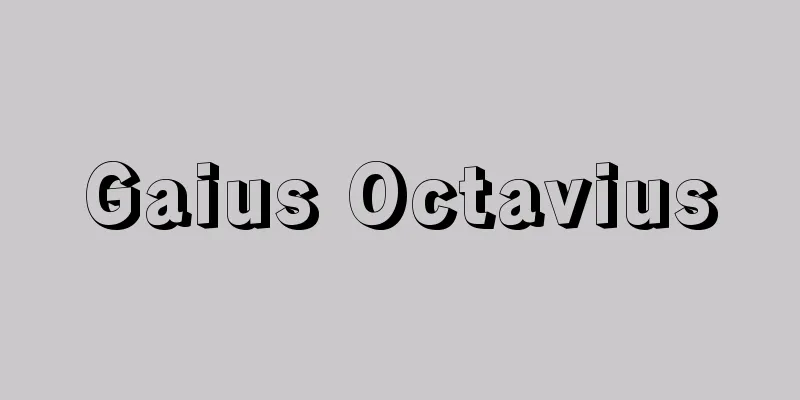Emperor Organ Theory

|
A constitutional theory that holds that the Emperor is the highest organ of the state as a corporation, and not the sovereign. Initially, the interpretation of the Meiji Constitution was dominated by the Emperor's sovereignty theory, proposed by Tokyo Imperial University professor Hozumi Yatsuka and others, which rationalized the autocratic rule of the clan-based bureaucrats. In response, Tokyo University professor Ichiki Kitokuro stipulated that governing power belongs to the state as a corporation, and that the Emperor occupies the highest position among the various organs that run the state, denying the Emperor's divine transcendence. The state corporation theory that Ichiki inherited in the first half of the 19th century originally played a role in defending monarchical power in opposition to the theory of popular sovereignty, and Ichiki's theory also considered the authority of the Emperor, the highest organ, to be absolute, and Ichiki was therefore highly valued by the bureaucratic forces after the Sino-Japanese War, who began to seek compromise with political parties. Minobe Tatsukichi, a professor at Tokyo University and a student of Ichiki, introduced the theory of G. Jellinek, who revived the state corporation theory as a theory of resistance to the strengthening of German monarchy after the Bismarck era after the Russo-Japanese War, and proposed that the Diet, as the representative organ of the people, could bind the will of the Emperor through the Cabinet, providing a theoretical foundation for party politics. Sasaki Soichi, a professor at Kyoto Imperial University, also advocated a similar theory, and in the 1920s the Emperor Organ Theory became the constitutional theory officially recognized by the state. However, with the rise of military fascism, the National Polity Clarification Movement, which rejected the Organ Theory, began in 1935 (Showa 10), and Minobe resigned from his seat in the House of Peers, where he had held since 1932, his major works were banned, and the Emperor Organ Theory was removed from university lecture halls. The draft constitution of the government, Liberal Party, and Socialist Party immediately after the war was based on this theory, but with the establishment of the Constitution of Japan, the Emperor lost his status as the highest authority, and at the same time, this theory lost its basis for existence. [Matsuo Takatsugu] "A Study of the Intellectual History of Minobe Tatsukichi" by Saburo Ienaga (1964, Iwanami Shoten) " "Constitutional Social History" by Yasutoshi Kamiyama (1977, Nippon Hyoronsha) [Reference items] | |Source: Shogakukan Encyclopedia Nipponica About Encyclopedia Nipponica Information | Legend |
|
天皇は法人たる国家の最高機関であり主権者ではないとする憲法学説。明治憲法の解釈では、当初、東京帝国大学教授穂積八束(ほづみやつか)らによる天皇主権説が支配的で、藩閥官僚専制支配を合理化した。これに対し、東大教授の一木喜徳郎(いちききとくろう)は、統治権は法人たる国家に帰属するもので、天皇は国家を動かす諸機関のうち最高の地位を占めるものと規定し、天皇の神格的超越性を否定した。もともと一木の継承した19世紀前半の国家法人説は、人民主権説に対し君権擁護の役割を演じたものだけに、一木学説も最高機関天皇の権限を絶対視し、ゆえに一木は、政党勢力との妥協を計るようになった日清(にっしん)戦争後の官僚勢力に重用された。一木門下の東大教授美濃部達吉(みのべたつきち)は、日露戦争後、ビスマルク時代以後のドイツ君権強化に対する抵抗の理論として国家法人説を再生させたG・イェリネックの学説を導入し、国民代表機関たる議会は内閣を通して天皇の意思を拘束しうるとの説をたて、政党政治に理論的基礎を与えた。京都帝大教授佐々木惣一(そういち)もほぼ同様な説を唱え、1920年代には天皇機関説がほとんど国家公認の憲法学説となった。しかし軍部ファシズムの台頭とともに、35年(昭和10)機関説排撃の国体明徴運動が起こり、美濃部は32年以来の貴族院の議席を去り、その主著は発禁され、天皇機関説は大学の講壇から排除されるに至った。敗戦直後の政府および自由党、社会党の憲法草案はこの学説に基づき構成されたが、日本国憲法の成立により、天皇は最高機関の地位を失い、同時にこの学説も存立の基礎を奪われた。 [松尾尊兌] 『家永三郎著『美濃部達吉の思想史的研究』(1964・岩波書店)』▽『上山安敏著『憲法社会史』(1977・日本評論社)』 [参照項目] | |出典 小学館 日本大百科全書(ニッポニカ)日本大百科全書(ニッポニカ)について 情報 | 凡例 |
Recommend
Austen, WR (English spelling) AustenWR
...In the 19th century, Berriman's work was c...
Sending money to Edo
…The kakeya were the ones who handled the receipt...
Seisai's notes - Seisai Zakki
Miscellaneous writings compiled by Mukoyama Seisai...
Descriptive grammar
A description of the state of a language at a cert...
He Zhi-zhang (English name)
[Birth] Akiyoshi 4 (659) [Died] Tenpo 3 (744) A Ch...
Gojo clan
A powerful clan in Kyushu that flourished after th...
Absorptiometric method
A method for quantifying and identifying substance...
Farad - Farad (English spelling)
A unit of capacitance in the International System...
Adachi Jokuro - Adachi Jokuro
...A military commander in the mid-Kamakura perio...
Kadphises I
King of the Kushan Empire in ancient India. Accord...
Green pear - Aonashi
...During the Edo period, Japanese pears were cul...
Malla (English spelling)
An ancient tribe in North India. Around the 6th ce...
Kegon Gojugosho Emaki (Illustrated Scroll of the Fifty-Five Temples of the Kegon Sect)
Picture scroll. 1 volume. National Treasure. Owne...
back
〘noun〙 (back)① back. Also, the rear part. The othe...
oregano
The origin of the word oregano comes from the Gree...

![Niki [town] - Niki](/upload/images/67cc6b9a9ebd1.webp)







